“A dispensation is a period of time during which man is tested in respect of obedience to some specific revelation of the will of God.”
— Dr. Charles C. Ryrie
Previous Entries
As we have thoroughly explored in earlier chapters, the theological system of dispensationalism can not be found amongst the Church fathers, the Reformers, or any part of Christendom before its advent in 1830. At most, singular aspects of this theological system — such as a national restoration of Israel, a pre-tribulational rapture of the Church, or an earthly Millenium — can be found espoused by different writers throughout the two-thousand years of Church history. But that is certainly a far cry from the bold, baseless assertion that the Church fathers were holistically dispensational in their thinking, interpretation or theology; or that this non-existent viewpoint somehow constituted the majority belief in the first three centuries of the Church.
While the exploration of the historical and theological roots of dispensationalism is rightly alarming, it is admittedly not in and of itself dispositive proof of its error. Despite Scofield and Darby’s numerous and troubling connections with the occult, proponents of their theological system will often use the tautological statement “God has to work through sinners” as a defense; as if this somehow absolves their doctrine from its ties to the men most singularly responsible for its promulgation. Now indeed, since we are all sinners, the legitimacy of dispensationalism rests upon The Word of God alone, not Scofield’s piety (or distinct lack thereof).
So, let us turn to The Word of God then and determine what dispensational claims hold up to scrutiny under the entire counsel of God.
— The seven alleged dispensations. These distinctions, outside of the Old and New Covenants, are utterly lacking in Scriptural proof.
That begins firstly with the name itself, where the so-called seven dispensations derive from. Proponents of this system will cite the following verses as proof that dispensationalism is a long standing Biblical doctrine (all emphasis below is mine):
Whereof I am made a minister, according to the dispensation of God which is given to me for you, to fulfil the word of God
— Epistle to the Colossians 1:25 KJV
If ye have heard of the dispensation of the grace of God which is given me to you-ward:
— Epistle to the Ephesians 3:2 KJV
That in the dispensation of the fulness of times he might gather together in one all things in Christ, both which are in heaven, and which are on earth; even in him:
— Epistle to the Ephesians 1:10 KJV
For if I do this thing willingly, I have a reward: but if against my will, a dispensation of the gospel is committed unto me.
— 1st Epistle to the Corinthians 9:17 KJV
“See, dispensationalism is Biblical, it’s right there in the Bible!” they’ll say. While seemingly true, at first glance, the Biblical definition of dispensation and the modern ideation are entirely different, as we see from the Greek word used:
οἰκονομία (oikonomia): stewardship, administration
Part of Speech: Noun, Feminine
Phonetic Spelling: (oy-kon-om-ee'-ah)
Usage: management of household affairs, stewardship, administration.
Biblically speaking, a dispensation is a duty to administer, or dispense, something, in Paul’s case The Gospel. A dispensation is not defined or used anywhere in Scripture as an epoch or age where God fundamentally changes how he interacts with mankind. We certainly see nowhere in these verses where seven such distinctions are made, calling into question from the very outset a system that relies upon what is fundamentally a misappropriation of the Biblical term dispensation.
“For the law having a SHADOW of good things to come, and not the very image of the things, can never with those sacrifices which they offered year by year continually make the comers thereunto perfect.
— Epistle to the Hebrews 10:1 KJV
The most cited maxim of dispensationalism is its “consistent” literal interpretation of the Bible. It is, in the words of dispensationalist theologians, its “core teaching”:
This is, in my opinion, the most important belief of a dispensationalist because it leads to the rest. The core teaching of dispensationalism is that the Old Testament must be interpreted according to its own context, and the New Testament cannot reinterpret or change the meaning of a passage. In other words, one does not need the New Testament in order to know the true meaning of an Old Testament passage. The New Testament is crucial to our understanding of the unfolding revelation of God, but a dispensationalist is adamant that the New Testament does not reinterpret the Old.
— Peter Goeman, How do You Define Dispensationalism?
Consequently, they believe the Bible should be taken literally in ALL cases, including prophecy, unless the context clearly indicates otherwise. It is this hermeneutical framework that defines dispensationalism and what causes it to so radically depart from 1800 years of Christian orthodoxy.
Sadly, we must even define the term literal, as this word has also been misconstrued in dispensationalism:
Literal
adjective Conforming or limited to the simplest, nonfigurative, or most obvious meaning of a word or words.
adjective Word for word; verbatim.
adjective Avoiding exaggeration, metaphor, or embellishment; factual; prosaic.
— The American Heritage Dictionary of the English Language, 5th Edition
Even though the very definition of the word literal excludes this possibility, we are confidently told by dispensationalists that figures of speech can in fact be interpreted literally:
Consequently, we can say that either figures of speech or nonfigurative language may be interpreted figuratively or literally. Recognizing that language contains figures of speech does not indicate that an exegete interprets figuratively.
— John S. Feinberg, Ph.D.
No, quite literally, you can not interpret a figure of speech in anything other than a figurative sense, or it ceases to be a figure of speech. When Jesus says he is the door that all men must enter through, no dispensationalist thinks that Christ is a literal door any more than they think he is a literal vine, lamb, or rock.
Taking God’s Word literally when it should be literal and metaphorical when it should be metaphorical is vital, but that is hardly a hermeneutical approach exclusive to dispensationalism. That last caveat on when to apply a literal interpretation is where this claim of “consistency” utterly falls apart. We have now quickly veered off into the territory of subjectivity, as what is manifestly absurd, and thus should not be taken literally, is entirely subjective and dependant on the reader’s inherent biases.
Take any of the imagery in the Book of Revelation for instance. Are we to take Lucifer to be a literal red dragon? Will he be bound with a literal chain in a literal pit here on Earth? Are the beasts of Revelation 9:7-10 going to be literal locust sized horses with a man’s faces, a woman’s hair, a scorpion’s tail, and a lion’s teeth? Almost no dispensationalist commentator I’ve read believes these descriptions to be anything other than figurative imagery, yet they will still boldly claim to consistently apply their literal hermeneutic, especially when it comes to prophecy.
— The Apostle Paul by Unknown.
The next most oft asserted maxim by dispensationalists is that we must “rightly divide the word”, which, according to them, means we must divide the Bible up into the miniscule section that applies to Church. The proof text for this claim is seen in Paul’s second pastoral epistle to Timothy:
Study to shew thyself approved unto God, a workman that needeth not to be ashamed, rightly dividing the word of truth.
— 2nd Epistle to Timothy 2:15 KJV
Once again, this interpretation relies upon a fundamental misunderstanding and misapplication of the Greek word for “rightly dividing”:
ὀρθοτομέω (orthotomeó): to cut straight
Part of Speech: Verb
Phonetic Spelling: (or-thot-om-eh'-o)
Usage: I cut straight; met: I handle correctly, teach rightly.
To rightly divide The Word does not mean to slice the Bible up into increasingly smaller segments, picking and choosing which parts of Christ’s teachings apply to the Church and which don’t. As Paul makes it clear for Timothy in the second chapter of this epistle, to rightly divide is to teach rightly, or properly. The context of the chapter and the surrounding verses make this metaphorical usage of orthotomeó rather obvious, which any Greek Bible lexicon will verify. That is, unless you are chained to a hermeneutic that forces you to interpret “rightly dividing the word of truth” in its most literal sense.
More troubling than its inconsistency, this approach goes against how Scripture interprets itself and how Scripture teaches us to interpret it. Critics of dispensationalism are often accused of “spiritualizing” verses, comparing spiritual things with spiritual things. Yet Holy Scripture teaches us that is precisely how to discern what is of the Spirit of God:
13 Which things also we speak, not in the words which man's wisdom teacheth, but which the Holy Ghost teacheth; comparing spiritual things with spiritual.
14 But the natural man receiveth not the things of the Spirit of God: for they are foolishness unto him: neither can he know them, because they are spiritually discerned.
— 1st Epistle to the Corinthians 2:13-14 KJV
There is a wisdom that is not man’s wisdom, and the wisdom of God is foolishness to the wisdom of man. Scofield and his followers teach the exact opposite, that NO spiritual discernment is necessary to understand the full meaning of the Old Testament. Going even farther than to teach that no “spiritualizing” is required, they in fact preach against it.
Throughout the New Testament, we see its inspired writers consistently “spiritualize” and allegorize Old Testament verses in the light of Christ’s revealed New Covenant truths:
22 For it is written, that Abraham had two sons, the one by a bondmaid, the other by a freewoman.
23 But he who was of the bondwoman was born after the flesh; but he of the freewoman was by promise.
24 Which things are an allegory: for these are the two covenants; the one from the mount Sinai, which gendereth to bondage, which is Agar.
25 For this Agar is mount Sinai in Arabia, and answereth to Jerusalem which now is, and is in bondage with her children.
26 But Jerusalem which is above is free, which is the mother of us all.
27 For it is written, Rejoice, thou barren that bearest not; break forth and cry, thou that travailest not: for the desolate hath many more children than she which hath an husband.
28 Now we, brethren, as Isaac was, are the children of promise.
— Epistle to the Galatians 4:22-28 KJV
What Paul describes for us here is a vital Biblical truth, that of the type and antitype. The Old Testament stories are real, literal events, but they are also so much more. They were prefigurations of what was to come, consistently pointing towards Christ, His sacrifice, and the present glory of His mediation of a New and better Covenant (Hebrews 8:6). This principle is expounded upon by Christ when He compares His ministry with that of Jonah and Solomon (Matthew 12:38-42). Scofield and his teachings implicitly reject this magnificent thread running through Scripture, perversely severing the consistency of Biblical imagery in the name of consistency.
Examples of the pitfalls of this hermeneutic are provided for us aplenty in Scripture. The Pharisee Nicodemus interpreted Christ’s words literally, failing to understand their spiritual meaning:
3 Jesus answered and said unto him, Verily, verily, I say unto thee, Except a man be born again, he cannot see the kingdom of God.
4 Nicodemus saith unto him, How can a man be born when he is old? can he enter the second time into his mother's womb, and be born?
— The Gospel of John 3:3-4 KJV
Nicodemus was hardly the only Judean stuck in this carnal mindset, unable to perceive or discern the wisdom of God. The Apostles are upbraided by Jesus for this very same thing:
5 And when his disciples were come to the other side, they had forgotten to take bread.
6 Then Jesus said unto them, Take heed and beware of the leaven of the Pharisees and of the Sadducees.
7 And they reasoned among themselves, saying, It is because we have taken no bread.
8 Which when Jesus perceived, he said unto them, O ye of little faith, why reason ye among yourselves, because ye have brought no bread?…
11 How is it that ye do not understand that I spake it not to you concerning bread, that ye should beware of the leaven of the Pharisees and of the Sadducees?
12 Then understood they how that he bade them not beware of the leaven of bread, but of the doctrine of the Pharisees and of the Sadducees.
— The Gospel of Matthew 16:5-8, 11-12 KJV
Christ directly links their unbelief with their inability to discern His true intent.
That is not say that I think dispensationalists are in a state of unbelief, but rather that no belief or spiritual discernment is required to analyze words in their most literal sense. It is a hermeneutic that is purely carnal and pharisaical in its application and praxis.
Indeed, this hermeneutical approach is not only flawed, carnal, and inconsistent, but more importantly, it is unbiblical.
“6 I marvel that ye are so soon removed from him that called you into the grace of Christ unto another gospel:
7 Which is not another; but there be some that trouble you, and would pervert the gospel of Christ.
8 But though we, or an angel from heaven, preach any other gospel unto you than that which we have preached unto you, let him be ACCURSED.
9 As we said before, so say I now again, if any man preach any other gospel unto you than that ye have received, let him be ACCURSED.
10 For do I now persuade men, or God? or do I seek to please men? for if I yet pleased men, I should not be the servant of Christ.”
— Epistle to the Galatians 1:6-10 KJV
The other defining characteristic of dispensationalism is the sharp distinction made between the faithful remnant of Israel and the Ecclesia (Matthew 16:18) of the New. Per Scofield’s notes:
Israel was the true ‘church’ but not in any sense the N.T. church-the only point of similarity being that both were ‘called out’ and by the same God. All else is contrast.
— Scofield Reference Bible
I have thoroughly refuted this notion in a previous essay, Israel of the Flesh, Israel of the Spirit, and would point the reader towards my previous work on this subject. Suffice it say, this idea does extreme violence to the cohesiveness of Scripture and God’s eternal and unchanging salvation message.
Wrapped up in this idea however is the notion that God has distinct promises and purposes for both Israel and the Church. Israel's promises are said primarily to be earthly and national, while the Church's promises are heavenly and spiritual. This idea is perhaps no better encapsulated than in the notes on the Abrahamic Covenant:
For Abraham and his descendants it is evident that the Abrahamic Covenant (Gen. 15.18, note) made a great change. They became distinctively the heirs of promise. That covenant is wholly gracious and unconditional. The descendants of Abraham had but to abide in their own land to inherit every blessing.
— Scofield Reference Bible
This blessing, according to Scofield, applied to Abraham and all his physical descendants (except Ishmael I guess):
There was a promise of blessing upon those individuals and nations who bless Abram’s descendants, and a curse laid upon those who persecute the Jews (Gen 12:3; Mat 25:31 – 46)…
For a nation to commit the sin of anti-Semitism brings inevitable judgment. The future will still more remarkably prove this principle.
— Scofield Reference Bible
This is perhaps the most noxious piece of Zionist propaganda in Scofield’s entire “bible”, one wholly without merit.
Let us read Genesis 12:3, the crux of the Abrahamic Covenant, and what Scofield cited above, for ourselves:
And I will bless them that bless thee, and curse him that curseth thee: and in thee shall all families of the earth be blessed.
— Genesis 12:3 KJV
This blessing is a singular blessing, applied to the man Abraham, not his entire physical lineage. Those that curse Abraham are cursed, not the Jews. If the dispensationalist interpretation were true, then all those who cursed the Arabs (the descendants of Ishmael through Abraham) would be cursed. Given that fact, you would be hard pressed to find a dispensationalist who actually adheres to a literal reading of this verse. Regardless of whether this blessing applies to the physical seed of Abraham or not, Paul’s epistle to the Galatians will soon make clear for us whom these blessing applies to.
— Christ on the Cross Le coup de lance, ill. by Simone Martin.
The most staggering claim that dispensationalism makes is that the last two thousand years of the Church is a “parenthesis”, a hidden/unforeseen event in God’s plan. If this bold claim is true, how do proponents of this system explain the following verses:
1 Behold my servant, whom I uphold; mine elect, in whom my soul delighteth; I have put my spirit upon him: he shall bring forth judgment to the Gentiles.
2 He shall not cry, nor lift up, nor cause his voice to be heard in the street.
3 A bruised reed shall he not break, and the smoking flax shall he not quench: he shall bring forth judgment unto truth.
— Isaiah 42:1-3 KJV
Matthew states quite clearly that this prophecy was fulfilled during Christ’s ministry (Matthew 12:15-21), one of many prophecies in Isaiah that the New Testament writers state have been fulfilled — past tense. Likewise, we are explicitly told the Redeemer, the Holy One (obviously Christ), will be given for the salvation of the Gentiles:
6 And he said, It is a light thing that thou shouldest be my servant to raise up the tribes of Jacob, and to restore the preserved of Israel: I will also give thee for a light to the Gentiles, that thou mayest be my salvation unto the end of the earth.
7 Thus saith the Lord, the Redeemer of Israel, and his Holy One, to him whom man despiseth, to him whom the nation abhorreth, to a servant of rulers, Kings shall see and arise, princes also shall worship, because of the Lord that is faithful, and the Holy One of Israel, and he shall choose thee.
8 Thus saith the Lord, In an acceptable time have I heard thee, and in a day of salvation have I helped thee: and I will preserve thee, and give thee for a covenant of the people
— The Book of Isaiah 49:6-8 KJV
Salvation is inherently tied into this New Covenant by Isaiah. Just a few chapters later, Isaiah once again prophesied that the gentile nations shall run unto God because of the Holy One:
Behold, thou shalt call a nation that thou knowest not, and nations that knew not thee shall run unto thee because of the LORD thy God, and for the Holy One of Israel; for he hath glorified thee.
— The Book of Isaiah 55:5 KJV
The Psalmist also prophesies of this glorious day:
All nations whom thou hast made shall come and worship before thee, O Lord; and shall glorify thy name.
— Psalm 86:9 KJV
So no “Dr.” Scofield, in fact ALL of the prophets spoke of Christ and his suffering for the salvation of all, both Jew and Gentile; both of whom now abide within the same sheepfold and with the same shepherd.
What Isaiah is preaching is The Gospel. This was not an unforeseen event entirely hidden from our eyes, but a clear message seen throughout the Old Testament; veiled from the carnal and unbelieving alone. From the very first prophecy seen in the Bible (Genesis 3:15), we are given the surety of the promised seed vanquishing evil at the cost of His suffering. Christ affirms that the Gentiles will be apart of His flock during His ministry:
And other sheep I have, which are not of this fold: them also I must bring, and they shall hear my voice; and there shall be one fold, and one shepherd.
— The Gospel of John 10:16 KJV
That singular sheepfold is the Church through whom all must enter in via Christ alone (John 10:1-10), made up of all believers past and present.
No better chapter in the New Testament crystalizes these truths for us than Galatians 3. In it, Paul warns the church in Galatia of the dangers of the Judaistic heresies creeping into their midst. While we do not know the exact messages being preached by these false teachers, the Judaizers were the first wolves within the sheepfold:
7 Know ye therefore that they which are of faith, the same are the children of Abraham.
8 And the scripture, foreseeing that God would justify the heathen through faith, preached before the gospel unto Abraham, saying, In thee shall all nations be blessed.
9 So then they which be of faith are blessed with faithful Abraham.
— Epistle to the Galatians 3:7-9 KJV
The Gospel that is preached unto Abraham is expanded from the first Gospel message seen in Genesis 3:15, but its subject is the same: the promised seed, the Christ, will bless all the nations. Paul makes note that even the Abrahamic Covenant has shadows of the blessings that the Gentiles have received through Christ with Abraham.
Unlike Scofield’s notes, Paul states that the blessing of Abraham can only come unto the Gentiles through Christ:
13 Christ hath redeemed us from the curse of the law, being made a curse for us: for it is written, Cursed is every one that hangeth on a tree:
14 That the blessing of Abraham might come on the Gentiles through Jesus Christ; that we might receive the promise of the Spirit through faith.
15 Brethren, I speak after the manner of men; Though it be but a man's covenant, yet if it be confirmed, no man disannulleth, or addeth thereto.
16 Now to Abraham and his seed were the promises made. He saith not, And to seeds, as of many; but as of one, And to thy seed, which is Christ.
— Epistle to the Galatians 3:13-16 KJV
The seed to whom the promises of Genesis 12 and 22 were made are not the physical descendants of Abraham, but rather Jesus Christ alone. It is through Christ alone that we may become heirs of that same promise:
26 For ye are all the children of God by faith in Christ Jesus.
27 For as many of you as have been baptized into Christ have put on Christ.
28 There is neither Jew nor Greek, there is neither bond nor free, there is neither male nor female: for ye are all one in Christ Jesus.
29 And if ye be Christ's, then are ye Abraham's seed, and heirs according to the promise.
— Epistle to the Galatians 3:26-29 KJV
To bless Israel therefore is to bless Christ and His New Covenant Church, not a pagan nation of antichrist idolaters who reject their Messiah and name their AI bombing algorithms after His glorious Gospel message.
“1 Moreover, brethren, I declare unto you the gospel which I preached unto you, which also ye have received, and wherein ye stand;
2 By which also ye are saved, if ye keep in memory what I preached unto you, unless ye have believed in vain.
3 For I delivered unto you first of all that which I also received, how that Christ died for our sins according to the scriptures;
4 And that he was buried, and that he rose again the third day according to the scriptures:”
— 1st Epistle to the Corinthians 15:1-4 KJV
Many dispensationalists will teach that there are different gospels for different peoples, with anywhere from two to five different gospels. They rarely ever articulate how these gospels differ, but they’re named different things so they have to be different we are told. By that remedial logic, there must be numerous different Christs in their Bible since He called himself the vine, the door and the rock. Things that are called different titles can still be the same thing, a principle seen throughout Scripture (Abram/Abraham, Jacob/Israel, Naomi/Mara, Paul/Saul etc.).
After His resurrection, Jesus explains the cohesiveness of The Gospel message to His Apostles:
25 Then he said unto them, O fools, and slow of heart to believe all that the prophets have spoken:
26 Ought not Christ to have suffered these things, and to enter into his glory?
27 And beginning at Moses and all the prophets, he expounded unto them in all the scriptures the things concerning himself.
— The Gospel of Luke 24:25-27 KJV
We see yet again Christ links unbelief with the inability for the Apostles to see the obvious messianic prophecies throughout the Old Testament. All the prophets spoke of Christ and His suffering, something Christ would later reveal to the Apostles in the upper room:
44 And he said unto them, These are the words which I spake unto you, while I was yet with you, that all things must be fulfilled, which were written in the law of Moses, and in the prophets, and in the psalms, concerning me.
45 Then opened he their understanding, that they might understand the scriptures,
46 And said unto them, Thus it is written, and thus it behooved Christ to suffer, and to rise from the dead the third day:
47 And that repentance and remission of sins should be preached in his name among all nations, beginning at Jerusalem.
— The Gospel of Luke 24:44-47 KJV
Christ has explicitly stated multiple times now that His plan has and always did include all nations, further stating that all prophecies concerning Him in the Old Testament have been fulfilled. After this conversation, and before Pentecost, Peter specifically cites Psalm 69 and Psalm 109 as prophecies that have been fulfilled concerning Christ’s betrayal by Judas (Acts 1:16-20). No doubt, these Messianic psalms were among the many such psalms our LORD revealed to His Apostles.
While Paul is often accused of preaching a different gospel, the “gospel of the uncircumcision”, he too affirms that he is preaching the very same message that Moses and all of the prophets foretold:
15 And I said, Who art thou, Lord? And he said, I am Jesus whom thou persecutest.
16 But rise, and stand upon thy feet: for I have appeared unto thee for this purpose, to make thee a minister and a witness both of these things which thou hast seen, and of those things in the which I will appear unto thee;
17 Delivering thee from the people, and from the Gentiles, unto whom now I send thee,
18 To open their eyes, and to turn them from darkness to light, and from the power of Satan unto God, that they may receive forgiveness of sins, and inheritance among them which are sanctified by faith that is in me.
19 Whereupon, O king Agrippa, I was not disobedient unto the heavenly vision:
20 But shewed first unto them of Damascus, and at Jerusalem, and throughout all the coasts of Judaea, and then to the Gentiles, that they should repent and turn to God, and do works meet for repentance.
21 For these causes the Jews caught me in the temple, and went about to kill me.
22 Having therefore obtained help of God, I continue unto this day, witnessing both to small and great, saying none other things than those which the prophets and Moses did say should come:
23 That Christ should suffer, and that he should be the first that should rise from the dead, and should shew light unto the people, and to the Gentiles.
— Acts of the Apostles 26:15-23 KJV
So convincing is Paul’s speech that he almost converts the Jewish king Agrippa. Paul’s Gospel message, as he states clearly, is no different than that seen throughout the Scriptures. Revelation 19:10 states “the testimony of Jesus is the spirit of prophecy”, and that testimony has been evident from the beginning of sin’s entrance into the world.
Integral to this different gospel heresy is the heresy of different methods of salvation. According to Scofield’s notes, salvation was obtained through legal obedience to the law under the Mosaic Covenant:
As a dispensation, grace begins with the death and resurrection of Christ. The point of testing is no longer legal obedience as the condition of salvation…
— The Scofield Reference Bible
Scripture disagrees with Scofield once more, ”For by grace are ye saved through faith; and that not of yourselves: it is the gift of God:” (Ephesians 2:8).
Blood sacrifices never pleased God; it was a contrite, sorrowful heart that the LORD was always seeking (Psalm 51:17). If the blood of goats and bulls had saved anyone, then Christ’s sacrifice was in vain. Hebrews 10 simply dismantles this notion, for Christ’s sacrifice for His New Covenant people has once and for all made an end to sacrifices. In Hebrews 11 is seen the roll call of the Old Testament heroes, all saved through faith alone — not their adherence to the Law.
It has and always will be faith, faith in The Gospel promise, that saves.
“Beloved, believe not every spirit, but try the spirits whether they are of God: because many false prophets are gone out into the world.”
— 1st Epistle of John 4:1 KJV
Ultimately, the most attention grabbing claims of this heresy revolve around their eschatological beliefs. Movies and books such as the Left Behind series, The Late Great Planet Earth, & A Thief in the Night have popularized a sensationalist version of the End Times. According to this narrative, the Church’s mission ends in ignominy, raptured away sometime before or during a 7-year tribulation period. Only after the restoration of national Israel does a singular Antichrist figure emerge, leading a worldwide war against an ascendant Jewry. After this tribulation period, the Church saints reign from Heaven as a Jewish millennial kingdom unfolds on Earth. Like dispensationalism’s other claims, this too will be shown for its falsity in the closing chapter of this series. Nearly every facet of this damnable doctrine undermines Christ’s mediation over His New Covenant, while simultaneously denigrating His now present authority over all of creation (Matthew 28:13).
True theological legitimacy rests not on the authority of men, but on the unchanging Truth of God's Word. Therefore, the theological system of dispensationalism fails to withstand scrutiny when subjected to the entirety of God's Word. While proponents may attempt to defend it with appeals to historical figures or supposed Biblical mandates, the logical extrapolation of its core tenets reveals its intellectual and Scriptural bankruptcy. Its diehard proponents will doubtless continue to advocate for its validity, but they do so at their own peril.
Examining Darby's hermeneutic reveals further inconsistencies, misinterpretations, and misapplications. The concept of distinct “dispensations” lacks solid Scriptural support, relying instead on a strained reading of a scarce handful of verses. Likewise, the insistence on a strictly literal interpretation of all Scripture falls apart under scrutiny, leading to subjective and arbitrary conclusions. This mindset directly leads to the aberrant dispensationalist outlook on key Biblical themes such as: the unity of salvation for all believers, the continuity of God's plan throughout history, and the centrality of Christ in fulfilling God's Old Testament promises. It is these beliefs that expose Scofield and Darby’s teachings for the pernicious, Judaistic heresy it is. Rather than enriching our understanding of Scripture, dispensationalism introduces unnecessary confusion and false division, distorting the Gospel message by disrupting the continuity of Christ’s redemptive message.
In light of these conclusions, it is manifestly clear that dispensationalism does not align with the consistent teachings of Scripture or the historic Christian faith.
Our allegiance must be to the timeless and unchanging truth of God's Word — not the damnable Zionist doctrines of crypto-occultists!
— The Wolves Within III, digital art, 2023.
“Distinctions have been drawn by certain exceedingly wise men (measured by their own estimate of themselves), between the people of God who lived before the coming of Christ, and those who lived afterwards. We have even heard it asserted that those who lived before the coming of Christ do not belong to the church of God!
…Before the first advent, all the types and shadows all pointed one way — they pointed to Christ, and to him all the saints looked with hope. Those who lived before Christ were not saved with a different salvation to that which shall come to us.
They exercised FAITH as we must; that FAITH struggled as ours struggles, and that FAITH obtained its reward as ours shall.”
— Charles H. Spurgeon, Devotional Classics of C.H. Spurgeon



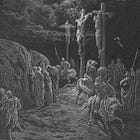
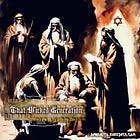




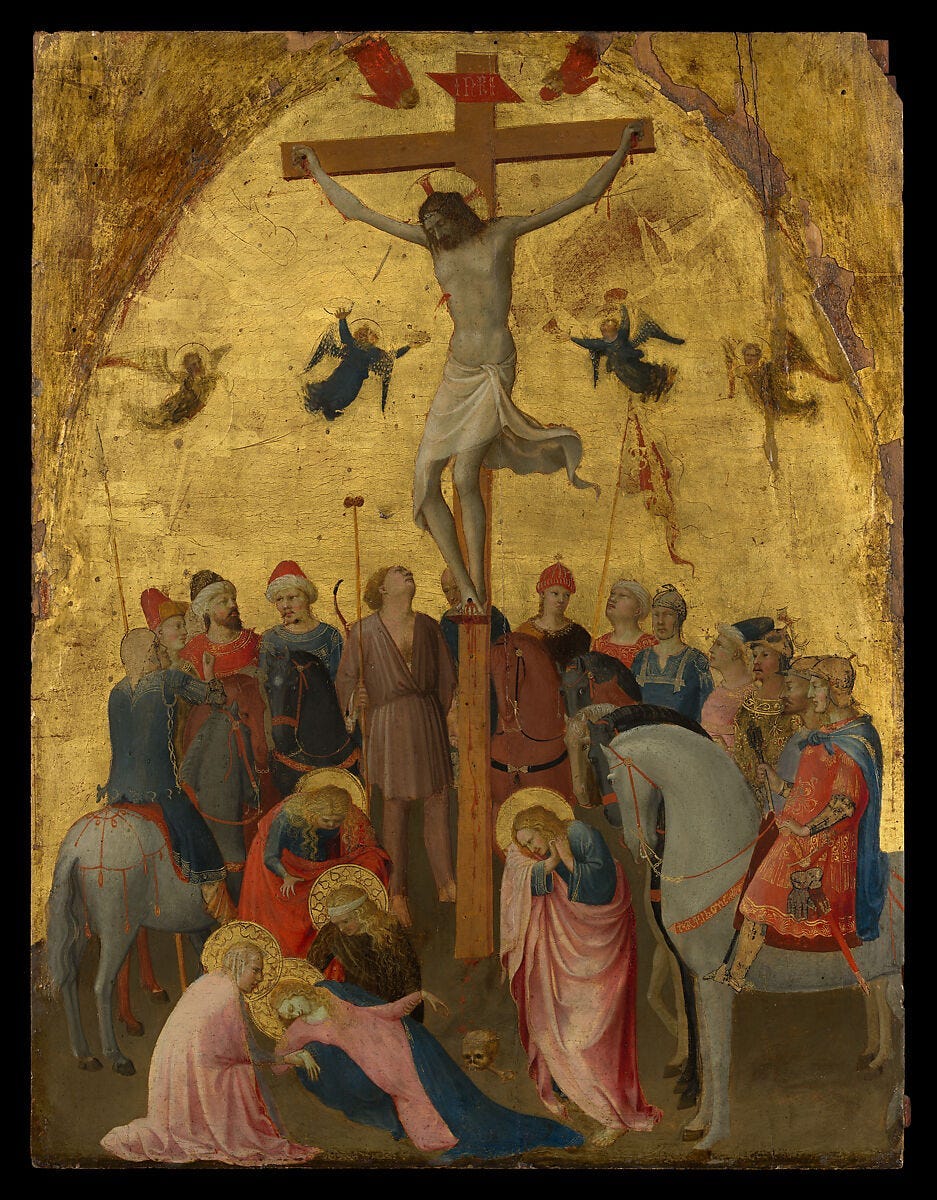


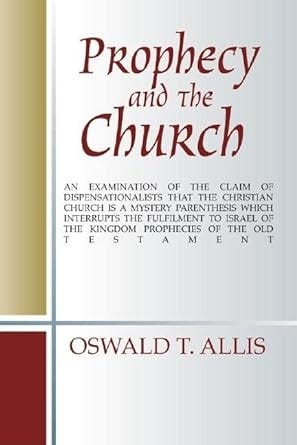
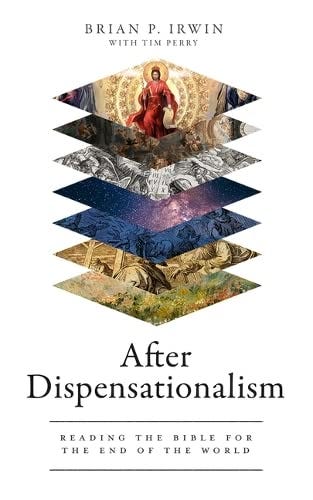

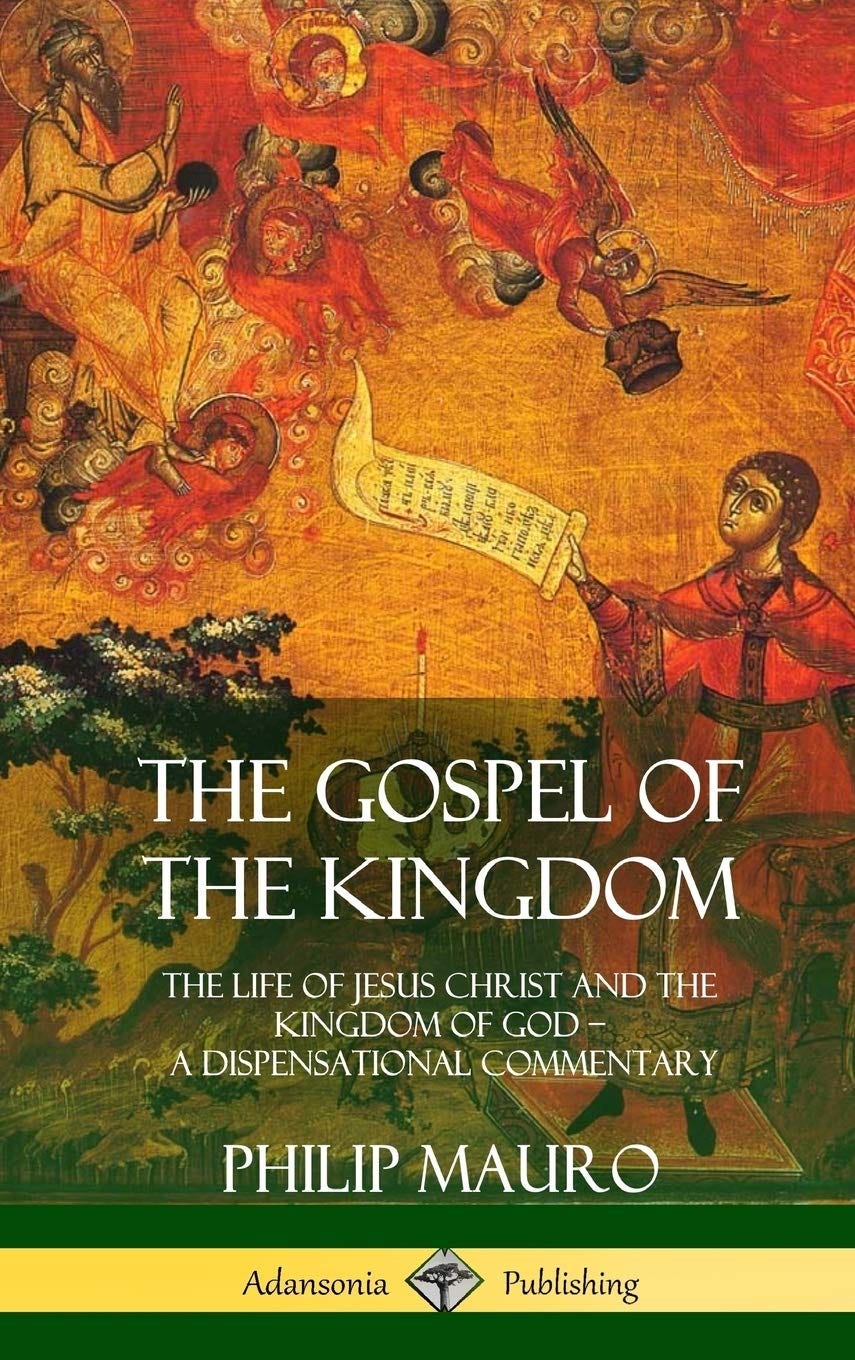
You're antisemite. Kidding. Satan has brilliantly infiltrated the body (church) of Jesus Christ like a cognitive disorder. As if people that call themselves Jews are somehow set apart and the political state of Israel has license to murder. It's insane. Zionism (fake Jews controlling the Jewish community) has infiltrated the church, controls our governments, Hollywood, etc. They are of their father the devil (Jn 8:44). What part of that do Jesus Christ followers not understand. They are of the synagogue of Satan (Rev 3:9). The same Satanists that rejected Yeshua are still rejecting and defiling Him today. God bless you.
Thanks! Keep 'em comin'!